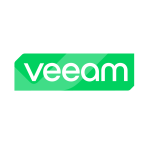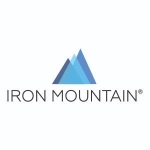How has it helped my organization?
It's been able to keep us lean and mean on the storage front. I don't want to be buying many racks of storage just to put in my datacenter, when it's not really providing lots of value. I want to have all the imported data with me, thus being able to lower that storage footprint.
What is most valuable?
Being able to effectively keep the live data on-premise, or the most recent data on-premise. But I make an affordable solution, where if data is out of a certain time, it goes and leverages all the cheap storage, whether that'll be the storage grid or an S3/S3WS. It's gives me the flexibility of keeping my day to where I want it now. If I need to get the data back really quickly, I put it on the long term retention, being able to access it in the same way.
Most importantly is having that island into that datacenter, and being able to address things in the same console. Thus, it is irrelevant where it's stored.
What needs improvement?
There are some bits it could do better. With tighter integration maybe with Veeam, or something like that, it'd be really good.
It is still shipping at the moment and it's quite a bigger plane. So, if you are going to go down the physical route, I'd charge for the VA.
I would improve upon the form factor. Some of the usability stuff is good. There's some better features around that prepopulate and cash-in again, that could be improved upon, but again, minor things.
What do I think about the stability of the solution?
Stability is rock solid from my point of view. I've been running it now for around 18 months. No downtime, no support code was locked. That speaks for itself in my opinion.
What do I think about the scalability of the solution?
At the moment, we're running it as a virtual appliance. There is no physical stuff on the site. It's all virtual. It seems to be doing the job well. If I need another one, I can scale it out.
How are customer service and technical support?
I haven't use tech support.
Which solution did I use previously and why did I switch?
I was sourced to go out into the market and look at what was out there. I'd been an existing NetApp customer and it made sense to look at what they had, especially now with the new versions of ONTAP and being able to literally snap mirror and snap vote stuff off into AltaVault, that was a real plus. I didn't need another piece of software to go and grab data to go put it into the cloud. Being able to manage one interface is really powerful.
We chose AltaVault, because we were really looking at our storage costs. They were always increasing each year. I don't think we've ever deleted data in our business, so every year I was going back adding more costt. I needed a solution that I could look at for over three to five years and say I'm going to put this investment in now. Also, say to management, over three to five years based on the current growth rates, and obviously leave it open for the future as well, it's going to cost you roughly this much. Because I know exactly how much it's going to cost me, I am able to charge that back into different departments, which is really good.
How was the initial setup?
The initial setup took 90 minutes. It deployed on the floor and was actively being used in 90 minutes.
Up until now, it has been AWS, though we are looking at the storage grid in the future. For a backup software, we're using SnapManager with the SnapCenter, or with SnapManager 3.0, it's really good. There's no third party bits there.
We are looking looking to use Veeam in the future as a repository to leverage all their great stuff.
What's my experience with pricing, setup cost, and licensing?
It's quite cost-effective.
Cloud-base will pay AWS by the minute, but then with AWS, it's an Excel-based decision. I am worried it has become more cost effective to built it yourself, so building something around a storage grid or something like that.
I'm in the middle at the minute of evaluating if it is cheaper to put on AWS or is it cheaper to go build it yourself? That's something I'm looking at.
Which other solutions did I evaluate?
We looked at other competitors, for example Data Domain from EMC. We didn't use it, though. Something that made the decision a wider one with AltaVault was the manageability. I didn't want another thing in the datacenter that I couldn't manage in the same way.
By using SnapManager and SnapVault, there's no additional training the team really needs to pick it up fairly well. It can all be managed easily.
What other advice do I have?
Depending on where's your primary data and what you want to achieve, AltaVault's not great in all cases. In my case, it is really good. I have really long data retention periods, and I want to keep my arms around the data. Also, I want to know where it is, but at the same time, I don't want to be looking at it everyday on the datacenter. Having a solution there that can move data from on-premise into the cloud and back is a massive win.
Most important criteria when selecting a vendor:
- Their reliability: We're in a storage market and a data market, the first thing is reliability. Everything that I do on top of it, I want it to work, but it has to be a really good foundation the bottom.
- Cost is obviously a factor, but for me, it's about reliability.
- I have somebody on the end of the phone. Where if I do have a problem, I can call and have good support with them? That's something that until you actually have a problem, you don't really realize its importance.
For me, it's about a company that I can work with and a company who's always innovating, not standing still. A company like that, with cost and the support, it's a great decision.
Disclosure: My company does not have a business relationship with this vendor other than being a customer.













